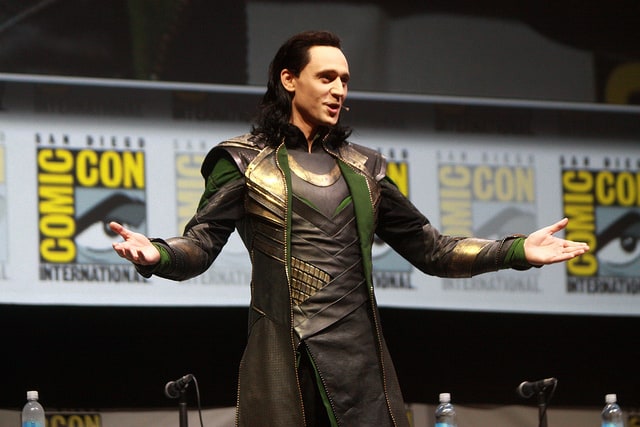
Ever since I was a kid, I’ve been a fan of comic books. As a mildly unpopular, nerdy, and studious child, comics offered an escape through narratives where muscles, popularity, and sports were not the only important things. As a mildly unpopular, nerdy, and lawyerly adult, I’ve marveled at the ability of comics to tell interesting and fascinating stories about identity, personal realization, and the human experience. Currently, this has been exemplified for me in the Marvel comics series Loki: Agent of Asgard written by Al Ewing, with art by Lee Garbet.
The Loki of Marvel’s comic is neither the Norse god of legend nor the villain of the recent movies. Rather, he is conflicted. This series starts with Loki having been re-born, and trying to escape the destiny of being the eternal villain. To do this, he makes a bargain with the “All-Mother”; he will be her secret agent. For each mission of good he accomplishes, one story of his treacherous and evil past will be erased. This way, he can escape that past, and achieve a true re-birth.
Yet, all is not as it seems. Part of his re-birth involved Loki murdering an innocent version of himself, “Kid Loki”, and this secret haunts him throughout the series. Can someone who starts his journey of redemption with such an evil act ever truly be redeemed?
What is more, the villain of the series is – you guessed it – Loki! Or, rather “King Loki,” a version of Loki from the future who is unabashedly evil, who has destroyed the Earth in his own time and has come back to ensure that his past self becomes well and truly evil. So, Loki is faced with both a backstory and a futurestory of evil. What chance of escaping his past and future of evil does he really have?
This is an amazing story of redemption, of identity. It asks the question, “what makes a person who they are?” Readers are invited to explore the struggle to break free of the past, to change a name, to struggle with dark secrets, and to do battle with who we fear we will become. And, ultimately, to ask if there is a way to reconcile all these versions of ourselves — the innocent past, the future we fear, the inscrutable present. And it doesn’t hurt that the story is fun. It has many of the best tropes of comic books: smart writing; very good art; humor; and appropriately over-the-top melodrama.
Few of us are legendary Norse gods of mischief. All of us, however, have struggled with questions of redemption, of identity, of personal growth. As fantastical and ridiculous as it might be, Loki: Agent of Asgard allows us to explore these themes, disarmed by that very fantasy. Give it a read and maybe you’ll find yourself asking about these same questions. And, if not, at least you’ll get to see a god shoot a fish with a bazooka.
******
Cover image courtesy Flickr CC user Gage Skidmore, available here.